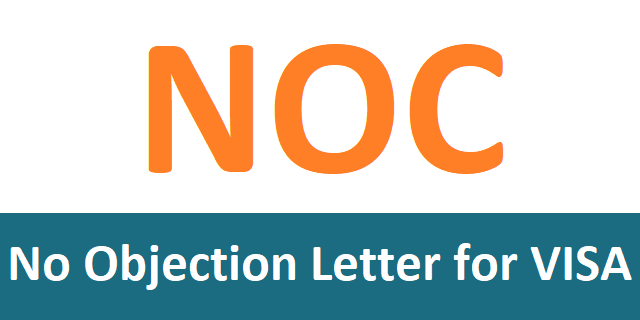
Bank loans for International students to study abroad
An aspiring international student should set their financial goals right as they are essential to your pre-departure journey. You should be set with enough financial proof before submitting a visa application. The first step to trying funding for your study abroad journey would be to try for a scholarship. However, it can be competitive to get a scholarship leaving you with an option to self sponsor or avail of a student loan. If you are looking for loan options to fund your studies, then you should first know what a student loan is. A student loan is a type of loan used to fund all your education needs like tuition, books, living, and sundry expenses. Unlike a housing or a personal loan, a student loan can be repaid at the middle or end of your studies or even after you get a job.
Read on to learn more about loan options if you wish to study in Australia, the UK, the USA, Canada.
Loan options to study in Australia
To be eligible for an international student loan in Australia, you should hold a high school diploma, a valid visa, and demonstrate financial proof for repayment. There are private banks that offer loans to international students. Banks like Harmony and HSBC provide loans at nominal interest rates for international students. Australian universities also offer loans that can be paid when you finish graduation. The repayment has to be prompt and needs to be done at the stipulated time; otherwise, your credit score will be affected, which decides your work visa and other prospects.
2. Loan options to study in the UK
Applying for an international student loan in the UK is a complicated process. One needs a solid credit score to get a loan in the UK. However, an international student may not have a credit score, making them ineligible for a federal loan. They may also need to have acquainted with someone who can co-sign with them on the loan documents. Don't worry, as you can avail of tuition loans and maintenance loans from private banks as an international student. You need to maintain a monthly balance of £1000-£ 1200 in your bank account to be eligible to maintain your status. So, the best bet would be to secure a student loan from your home country. This would ensure that you are free of any financial pressure when you land in the UK.
3. Loan options to study in the USA
An international student loan is a popular means of financing to study in the USA. These loans are available for the full amount of money you may need for your studies with flexible repayment options. They are also available at nominal interest rates that make repayment easier after studies. You should have a consigner ready to sign as a guarantee and would be liable to pay in case of non-repayment. The co-signer should be a resident of the USA with a good credit score. The interest and other terms would be based on the co-signer credit rating, so you need to ensure that the co-signer has a good credit history and is known to you personally.
4. Loan options to study in Canada
An International student may not be eligible for a Federal loan in Canada. If you need a loan to study in Canada, you may have to approach a private lender who has a tie-up with the Canadian government. You would also need a co-signer who is a Canadian citizen or a permanent resident and is ready to sign as a guarantor. If you fail to repay, then the onus of repayment of the loan would fall on the co-signer. There are select universities in Canada that have tie-ups with lenders and can provide you with a loan without a cosigner. The repayment varies from case to case. You can start repayment of the loan after you finish your studies and find a job. The interest rate would depend on the repayment structure, and if the co-signer has a good credit rating, then you can avail of low-interest rates. You can also avail of partial student loans to cover a portion of your accommodation or living expenses.

Everything you must know about the NOC -No Objection Certificate
While the commonly known term NOC (No Objection Certificate) is being used for property buying and selling purposes, it plays a significant role in students aspiring to study in their favourite universities and law schools overseas. Unlike the NOCs for construction, passport, and property transfer requirements, the No Objection Certificate issued by the Ministry of Education (MoE), Nepal, acts as a legit document to enable seamless fee transactions between students' bank accounts and universities. As a standard protocol, students must apply NOCs online and receive the NOC letter before reaching out to banks to transfer their tuition fees and other fees pertaining to the respective institutions overseas.
Owing to the border re-opening measures across countries, including Australia, the USA, the UK, it's an apt time to apply and receive your NOCs to study on-campus in your desired country.
Do you want to know the process and documents required to apply for a NOC? Well then, read on! This blog is specially curated for students like you to apply for a No Objection Certificate in no time!
Documents Required for NOC
- Citizenship proof
- Citizenship of guardian
- Valid visa copy
- Departure slip of passport (Nepal Immigration)
- Arrival slip of passport (Concern Country Immigration)
- University Bonafide Letter
- Invoice Letter (payment details)
- Original & photocopy of passport
- Original & photocopy of academic transcripts
- Acceptance letter or I-20 from the University/ Law School (the institution you are applying to study abroad).
Steps to apply NOC Online:
Location: Keshar Mahal, Kathmandu (adjacent to Garden of Dreams, Thamel)
Website: www.moe.gov.np
Email: info@moe.gov.np
Step 1 - Collect the NOC application form from the MoE distribution centre or download it from the MoE website and fill it.
Step 2 - Verify the duly filled form from the verification counter.
Step 3 - Pay the No Objection Certificate application procession fee (NPR 2000).
Step 4 - Collect the proof of payment slip and the verified application form to the NOC registration section, where you will be allocated a unique number.
Refer to the below table to know the respective counters at the MoE Centre.
Application Form Distribution2(a) numbered windowApplication Form+ Document Verification2(b) numbered windowRevenue Deposit1 numbered WindowApplication Registration3 numbered windowNo Objection Letter Distribution6 numbered window
Note:
- All students applying for the NOC must pay 2000 NPR.
- Students submitting the NOC form on or before 12 PM on the day of registration will receive their No Objection Certificates on the same day.
- Students submitting the duly filled form post 12 PM will receive their NOCs on the next working day.
- NOCs are distributed at window 6, and students are notified by their respective token numbers.
Course Specific NOC Eligibility Requirements:
Certificate III-V /Diploma/ Advanced Diploma /Level 3-5 (Min 2 Year Diploma)
- Academic Transcript (+2 or Equivalence)
- Citizenship Certificate
- Certificate of Admission/Offer Letter/Acceptance Letter /1-20 letter
- Invoice Letter
- Equivalent Letter (If studied high school overseas)
- English Language Test Certificate.
- Copy of Previous NOC (If It has been issued before)
- Graduate Certificate /Graduate Diploma
2. Graduate Certificate /Graduate Diploma/Post Graduate Diploma (1 Year)
- Citizenship Certificate
- Academic Transcript (Bachelor)
- Certificate of Admission/Offer Letter/Acceptance Letter /1-20 Letter
- Invoice Letter
- English Language Test Certificate
3. For Bachelor Degree Student (Min 3 years)
- Korean University Business Registration Certificate (Republic of Korea Only)
- NHPC Registration License (If Diploma degree Achieved)
- NHPC Pre-Approval Letter (If Diploma degree Achieved, Like HA to Public Health)
- CAAN Pre-Approval (for Piloting Training courses)
- English Language Test Certificate
4. For Nursing Student
- Citizenship Certificate
- Transcript Certificate (PCL Nursing/Bio-Group)
- Certificate of Admission/Offer Letter/Acceptance Letter /1-20 Letter
- Invoice Letter
- Nursing Council License (For PCL Nursing)
- Equivalent Letter of concern Institution
- NHPC Pre-Approval Letter
5. For Masters Degree Students
- Citizenship Certificate
- Academic Transcript certificate (Bachelor or Equivalent)
- Certificate of Admission/Offer Letter /Acceptance Letter /1-20 Letter
- Invoice Letter
- Council License (If Engineering, Medical, Nursing or Professional Degree is achieved)
- Undergraduate Degree Certificate (If studied overseas)
6. For Bachelor/Undergraduate (MBBS/BDS/BAMS/BVMS) Degree Students
- Citizenship Certificate
- Transcript Certificate (+2, PCL, Diploma/NHPC
- Certificate of Admission/Offer Letter /Acceptance Letter /1-20 Letter
- Invoice Letter
- Bridge Course certificate (for students from Non-Science Field, Like HA)

Top 10 Civil Engineering Courses to Study Abroad
Applying to U.S. graduate schools as an international student involves several key steps. Here’s a comprehensive guide to help you through the process:
1. Research and Choose Programs
Identify Your Field: Determine your area of interest and research programs that specialize in that field.
University Research: Look into universities known for strong programs in your field. Consider factors like faculty, research facilities, and location.
Program Requirements: Check each program’s specific admission requirements and deadlines.
2. Prepare for Standardized Tests
GRE/GMAT: Many graduate programs require the GRE (Graduate Record Examination) or GMAT (Graduate Management Admission Test). Prepare for and schedule these exams well in advance.
TOEFL/IELTS: If English is not your first language, you’ll likely need to take the TOEFL (Test of English as a Foreign Language) or IELTS (International English Language Testing System) to demonstrate English proficiency.
3. Gather Application Materials
Transcripts: Obtain official transcripts from all post-secondary institutions you have attended. These may need to be translated and evaluated for U.S. equivalency.
Letters of Recommendation: Secure letters from professors, employers, or professionals who can speak to your qualifications and potential.
Statement of Purpose: Write a compelling statement of purpose that outlines your academic and professional goals, research interests, and why you’re interested in the specific program.
Resume/CV: Prepare an up-to-date resume or curriculum vitae detailing your academic achievements, research experience, work experience, and relevant skills.
4. Complete Application Forms
Online Applications: Most U.S. graduate schools use online application systems. Create an account on the application portal of each university you are applying to.
Application Fees: Pay the application fees required by each university. Fee waivers may be available for qualifying students.
5. Submit Test Scores
Send Scores: Ensure that your standardized test scores are sent directly from the testing agency to the universities to which you are applying.
6. Apply for Financial Aid and Scholarships
Research Funding: Look for scholarships, fellowships, and assistantships offered by the universities, as well as external funding sources.
Financial Aid Applications: Complete any financial aid applications required by the university, such as the FAFSA (Free Application for Federal Student Aid) for U.S. citizens and permanent residents, or university-specific forms for international students.
7. Prepare for Interviews
Interview Process: Some programs may require interviews, either in-person or via video conference. Prepare to discuss your research interests, academic background, and career goals.
8. Apply for a Student Visa
I-20 Form: Once admitted, the university will issue an I-20 form, which is required to apply for an F-1 student visa.
Visa Application: Schedule a visa interview at the U.S. embassy or consulate in your home country. Prepare for the interview by gathering required documents such as the I-20 form, passport, visa application form (DS-160), and financial evidence.
9. Prepare for Departure
Accommodation: Arrange housing, either on-campus or off-campus.
Travel: Book your travel and plan your arrival in the U.S.
Health Insurance: Check if the university provides health insurance or if you need to purchase your own.
10. Orientation and Settling In
University Orientation: Attend any orientation programs offered by the university to help you acclimate to campus life.
Cultural Adjustment: Familiarize yourself with U.S. culture, academic expectations, and local resources.
Additional Tips
Stay Organized: Keep track of deadlines, required documents, and application statuses.
Seek Advice: Consider consulting an educational consultant or advisor who specializes in U.S. graduate school applications for personalized guidance.
If you have specific questions about any of these steps or need assistance with particular aspects of the application process, feel free to ask!